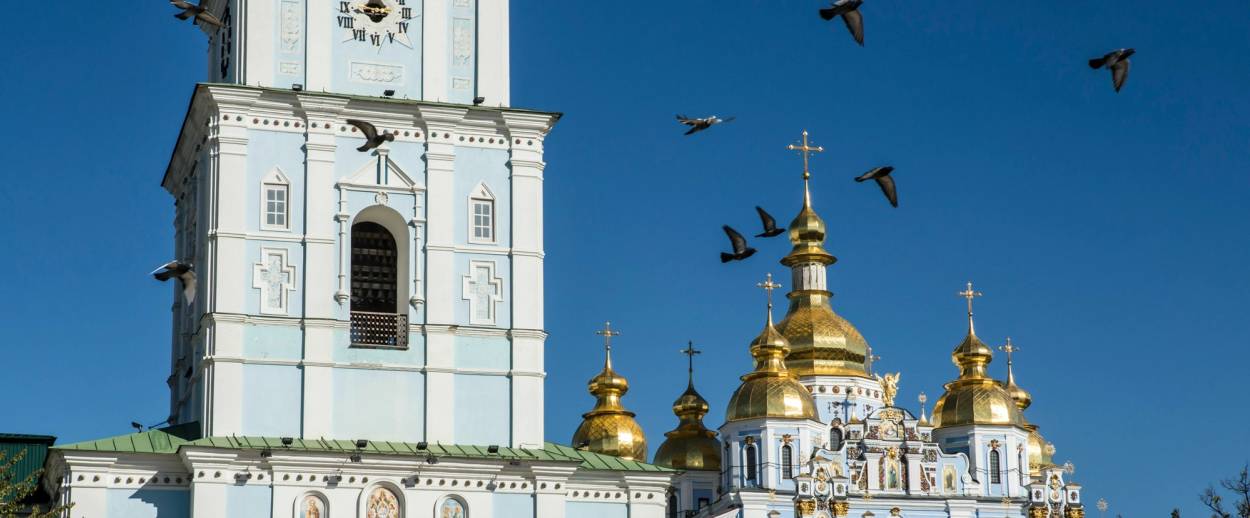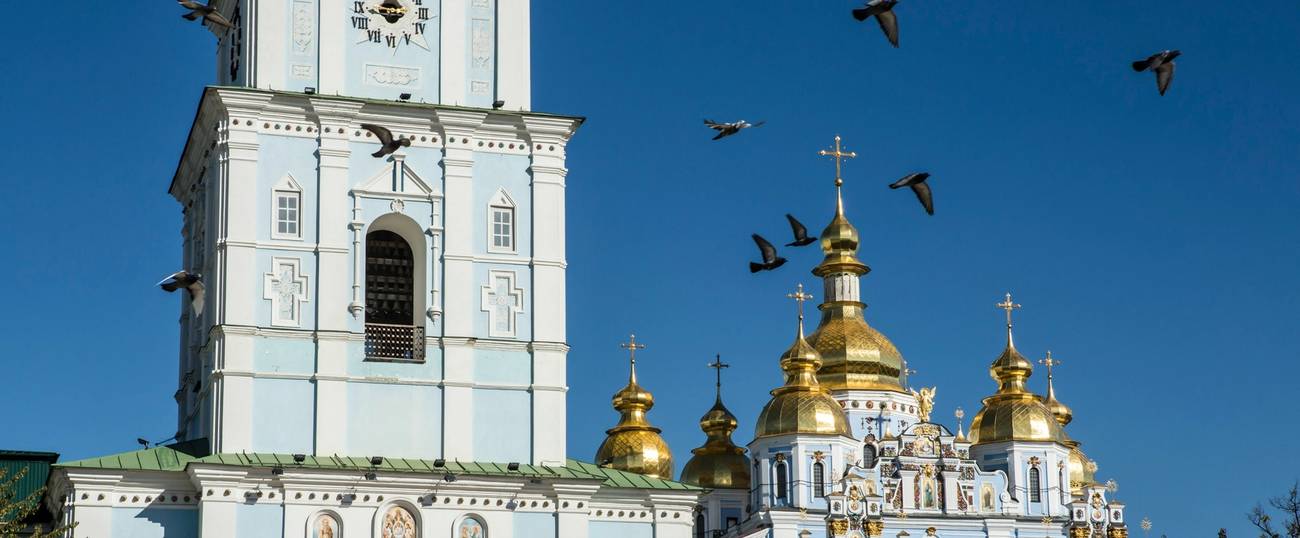The Crisis of Constantinople
After millennia, the Russian and Ukrainian Orthodox churches are splitting apart, fracturing the unity of Constantinople and possibly escalating the war between the two nations




A hastily assembled two-day synod concluded in the Belarusian capital of Minsk yesterday—the city chosen as neutral ground for negotiations between Kiev and Moscow—with a declaration from the Russian Orthodox church of its immediate intention to sunder all bonds with the Ecumenical Patriarchate of Constantinople. The split between the churches, which could end a tradition stretching back almost two millennia, has been driven largely by political enmity and is widely viewed as a proxy conflict between Russia and Ukraine. The concern now is that it will feed back into that process, escalating the ongoing military conflict between the two nations.
Constantinople has been the primary seat of the Orthodox Christian patriarchate for more than 1,500 years. That long era came to an end yesterday when Moscow’s patriarchate announced it would cease recognizing the authority of the patriarch of Constantinople as “first among equals.” Moscow’s decision was set in motion by the Ecumenical Patriarch of Constantinople granting de facto independence to the Ukrainian church. The Ukrainian church is still pursuing an official “Tomos of autocephaly,” the document that would grant it formal autonomy within the Christian Orthodox hierarchy, but the preliminary steps to the break with the Russian Orthodox church have now been fulfilled.
The theological pretext for the split was based on unwinding a 1686 decision that allowed Moscow ordination rights over clergy in the Ukrainian church, which thus became subordinated to the Moscow patriarchate. That decision had, in effect, created a pair of competing Orthodox churches on Ukrainian territory.
The outcome of the Synod’s decision in Minsk was essentially to codify the most important schism in Eastern Christianity in almost a millennium since representatives of the Roman Pope Leo IX arrived in Constantinople to place a bull of excommunication on the altar of the church of Hagia Sophia in 1054. The Russian church, which has close links to the Kremlin and is widely seen as actively supporting the political objectives of the Russian state, will now no longer be in communion with Constantinople.
The church schism is the latest in a series of volatile cleavages as Ukraine moves to separate itself from the Russian sphere of influence, a process that has in turn only intensified Russian aggression against the Ukrainian state.
The recent decision by Constantinople’s Bartholomew to grant independence to the Ukrainian church fulfills a longstanding national ambition in Kiev going back decades (some would say centuries). It also represents a personal victory for Filaret, Patriarch of the Ukrainian church, who had been campaigning for ecumenical divorce from Moscow since Ukraine first achieved independence from the Soviet Union. In the political sphere, the formal separation of the Ukrainian and Russian churches offers a much needed personal victory for Ukraine’s incumbent President Petro Poroshenko, who has staked much of his reelection campaign on his capacity to deliver an independent church. With presidential elections slated for next March, and with Mr. Poroshenko trailing badly in the polls, he is in dire need of such victories to present to a skeptical electorate in a country where incumbent presidents have not historically been given a second opportunity to govern.
Despite the split, the Russian Orthodox church remains the most powerful and numerous denomination within Ukraine. But Moscow’s claims to leadership of the Orthodox world are in jeopardy now as they have been based partly on the numbers or worshippers it draws in Ukraine. Russia and Constantinople have long jockeyed for position as the legitimate leaders of the Orthodox world. Last month Patriarch Kirill of Moscow traveled to Constantinople in a last-ditch attempt to convince Patriarch Bartholomew to stop Ukraine’s bid for autocephaly but he was rebuffed and informed that the decision has essentially already been taken.
Currently, the majority of Ukrainian parish churches in Ukraine belong to the Moscow—rather than the Kiev—patriarchate. But, while Moscow controls many of the most important monasteries and churches, many will now have an opportunity to switch allegiances. That process has been ongoing over the last four years with the schism driven by the view among many Ukrainians that the Russian Orthodox church took Moscow’s side in the war between the two states. There have indeed been incidents of Russian affiliated clergy in Ukraine having refused to take part in funerals for Ukrainian soldiers killed fighting against the Russian occupation of Eastern Ukraine.
Ominous promises to “protect Russian Orthodox believers living on the territory of Ukraine”, have emanated from Moscow over the last few weeks echoing earlier pledges to protect Russian speakers that served as a pretext to invade Ukraine in 2014. Many observers of the Russian-Ukrainian conflict have braced for a sharp escalation of fighting along the contact line in Eastern Ukraine. Though Radio Free Europe reported today that Russian President Vladimir Putin’s spokesman, Dmitry Peskov claimed “earlier that day that Russia will protect the interests of the faithful in Ukraine if the historic split leads to illegal action or violence” even as “he promised that [the Kremlin] would use “exclusively political and diplomatic” means to do so”.
The proxy war over social identity triggered by the church split has lit up Ukrainian social media with jubilant emotion in the wake of the announcement of the church’s independence on October 11th. Even non-Christian Ukrainians have joined in with patriotic declarations that they are: “Atheists, Kiev Patriarchate” or “Ukrainian Jews, Kiev patriarchate by association” over social media. The political, cultural and historical implications of the split will likely be tremendous and will likely be felt for decades to come. In the meantime, one can only hope that the split will not trigger a renewed episode of total war in Eastern Europe.
Vladislav Davidzon is Tablet’s European culture correspondent and a Ukrainian-American writer, translator, and critic. He is the Chief Editor of The Odessa Review and a Non-Resident Fellow at the Atlantic Council. He was born in Tashkent, Uzbekistan, and lives in Paris.